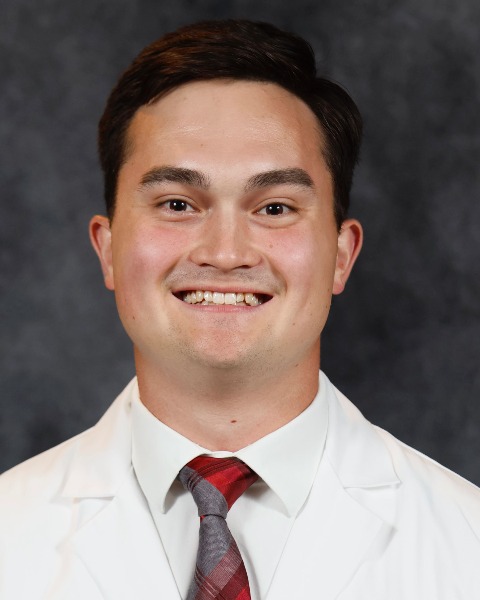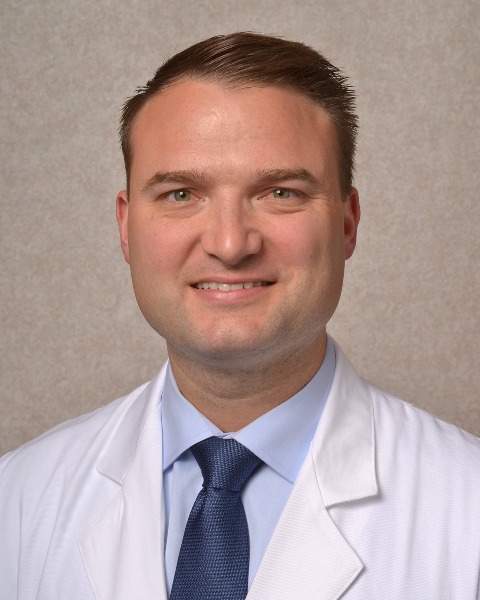Disparities in Surgical Oncologic Care
E153: Having Established Primary Care: Impact on Postoperative Outcomes among Patients Undergoing Surgery for Gastrointestinal Cancer

Erryk S. Katayama, BA
Medical Student
The Ohio State University College of Medicine, United States
Erryk S. Katayama, BA
Medical Student
The Ohio State University College of Medicine, United States- SW
Selamawit Woldesenbet, PhD
Statistician
Department of Surgery, The Ohio State University Wexner Medical Center, United States 
Muhammad Musaab Munir, MBBS (he/him/his)
Research Fellow
Department of Surgery, The Ohio State University Wexner Medical Center
Columbus, Ohio, United States
Yutaka Endo, MD, PhD
Research Fellow
Department of Surgery, The Ohio State University Wexner Medical Center, United States
Diamantis I. Tsilimigras, MD, PhD
Surgery Resident
Department of Surgery, The Ohio State University Wexner Medical Center
Columbus, Ohio, United States
Mujtaba Khalil, MD (he/him/his)
Research Fellow
Department of Surgery, The Ohio State University Wexner Medical Center
Columbus, Ohio, United States
Mary E. Dillhoff, MD
Surgical Oncologist
The Ohio State University Wexner Medical Center
Columbus, Ohio, United States.jpg)
Aslam Ejaz, MD
Surgical Oncologist
The Ohio State University Wexner Medical Center, United States
Jordan M. Cloyd, MD
Surgical Oncologist
Division of Surgical Oncology, The Ohio State University Wexner Medical Center, Columbus, OH, United States
Columbus, Ohio, United States
Timothy M. Pawlik, MD, PhD, MPH, MTS, MBA, FACS, FRACS (Hon.), FRCSEd (Hon.)
Surgical Oncologist
The Ohio State University Wexner Medical Center
Columbus, Ohio, United States
Timothy M. Pawlik, MD, PhD, MPH, MTS, MBA, FACS, FRACS (Hon.), FRCSEd (Hon.)
Surgical Oncologist
The Ohio State University Wexner Medical Center
Columbus, Ohio, United States
ePoster Abstract Author(s)
Author(s)
Submitter(s)
Author(s)
Regular primary care (PC) visits are essential to monitor wellness, enable proactive screening, and manage pre-existing comorbidities. In turn, patients without adequate access to PC may be at risk of adverse outcomes. We sought to characterize the impact of established PC visits on post-operative outcomes following surgical resection of gastrointestinal cancers.
Methods:
Patients diagnosed with esophagus, gastric, hepatobiliary, pancreas, and colorectal cancers between 2018-2021 were identified using Medicare Standard Analytic Files. Individuals with PC encounters within a year before the surgery were identified by Berenson-Eggers Type of Service and specialty codes, excluding encounters for immunizations. Pre-existing comorbidities were identified using 10th edition International Classification of Diseases codes. A postoperative textbook outcome (TO) was defined as the composite absence of complications, no prolonged length of stay, no readmission within 90 days, and no mortality.
Results:
Among 115,654 cancer patients (esophageal: n=1,854, 1.6%; gastric: n=4,690, 4.1%; hepatobiliary: n=6,873, 5.9%; pancreatic: n=8,912, 7.7%; colorectal: n=93,325, 90.7%), 78,443 (67.8%) had at least one PC visit within the year prior to surgery. Among patients without significant comorbidities, individuals with established PC were more likely to achieve TO (OR 1.31 [95%CI 1.27-1.36]) and had lower odds of a post-operative complication (OR 0.87 [0.83-0.90]), extended length of stay (OR 0.90 [0.86-0.94]), and 90-day mortality (OR 0.89 [0.83-0.95]) (Figure). Among patients with chronic medical conditions, the effect of preoperative PC visits was less pronounced: TO (OR 0.96 [0.92-0.99]), complication (OR 1.05 [1.00-1.10]), extended length of stay (OR 1.04 [0.98-1.09]), re-admitted within 90-days of discharge (OR 1.12 [1.06-1.17], and 90-day mortality (OR 1.02 [0.95-1.09]). The number of visits with PC was inversely related to odds of TO. Specifically, while a lower number of PC visits (< 5 times/year) was associated with an increased odds of TO (OR 1.09 [1.05-1.13]), multiple PC visits ( >10 times/year) was associated with a lower likelihood of TO (OR 0.87 [0.80-0.94]).
Conclusions:
Two in 3 patients with gastrointestinal cancer had established PC within the year prior to resection. Among patients without major comorbidities, established PC was associated with a higher chance of TO. PC could not mitigate the risk of worse post-operative outcomes among patients with high medical comorbidities, or individuals who needed to see their PC >10 times/year.
Learning Objectives:
- Upon completion, participant will be able to understand the multidisciplinary effects of regular primary care visits.
- Upon completion, participant will be able to cite the prevalence of established primary care in Medicare beneficiaries being treated for gastrointestinal cancers.
- Upon completion, participant will be able to explain differences in surgical outcomes based on comorbidity burden.
